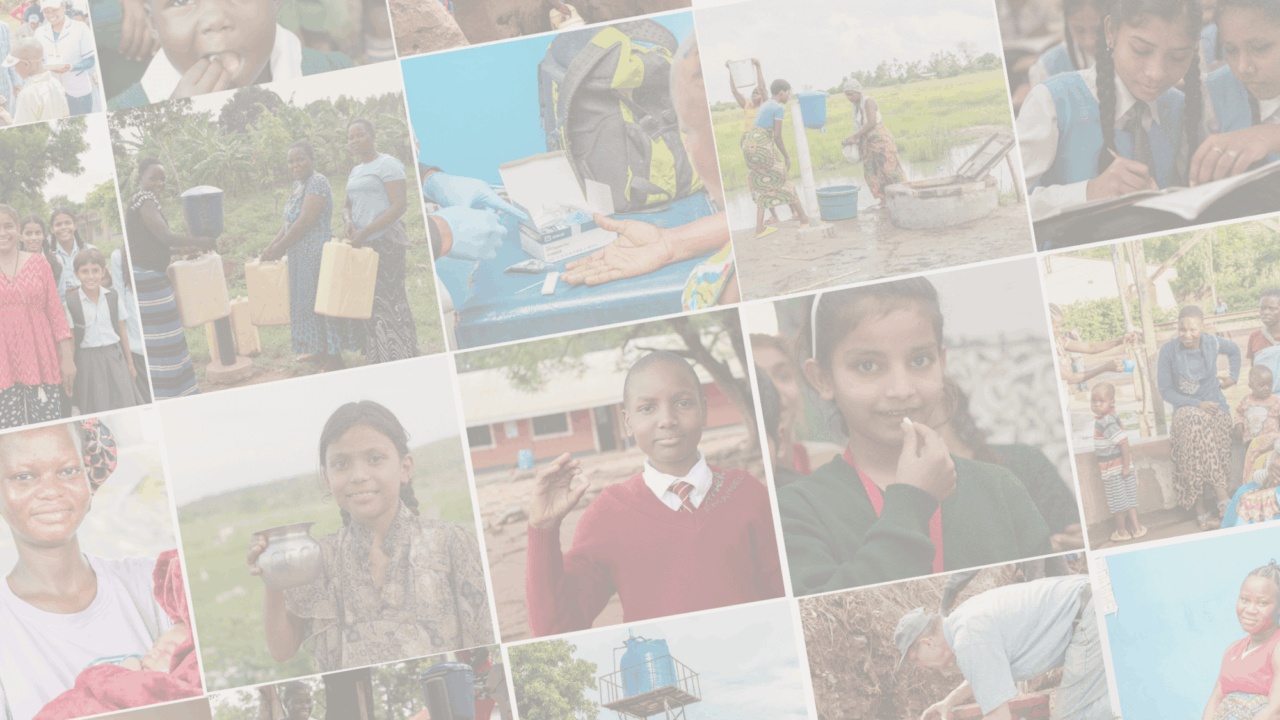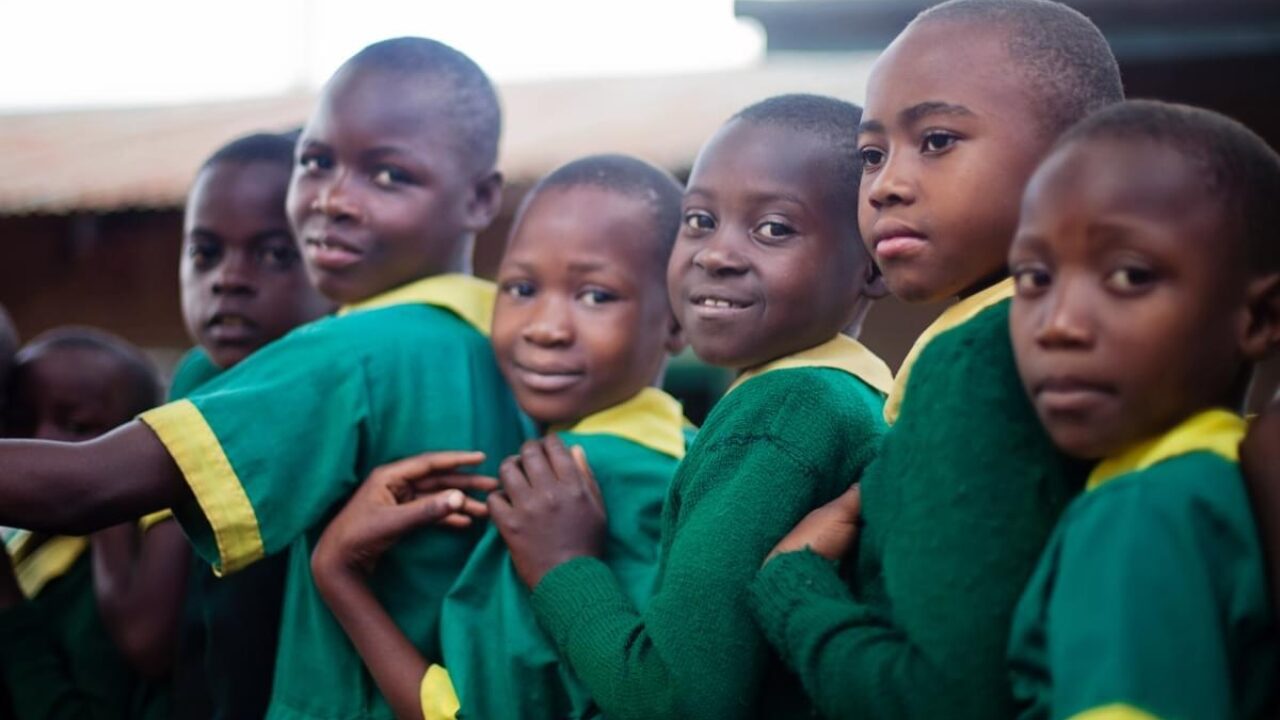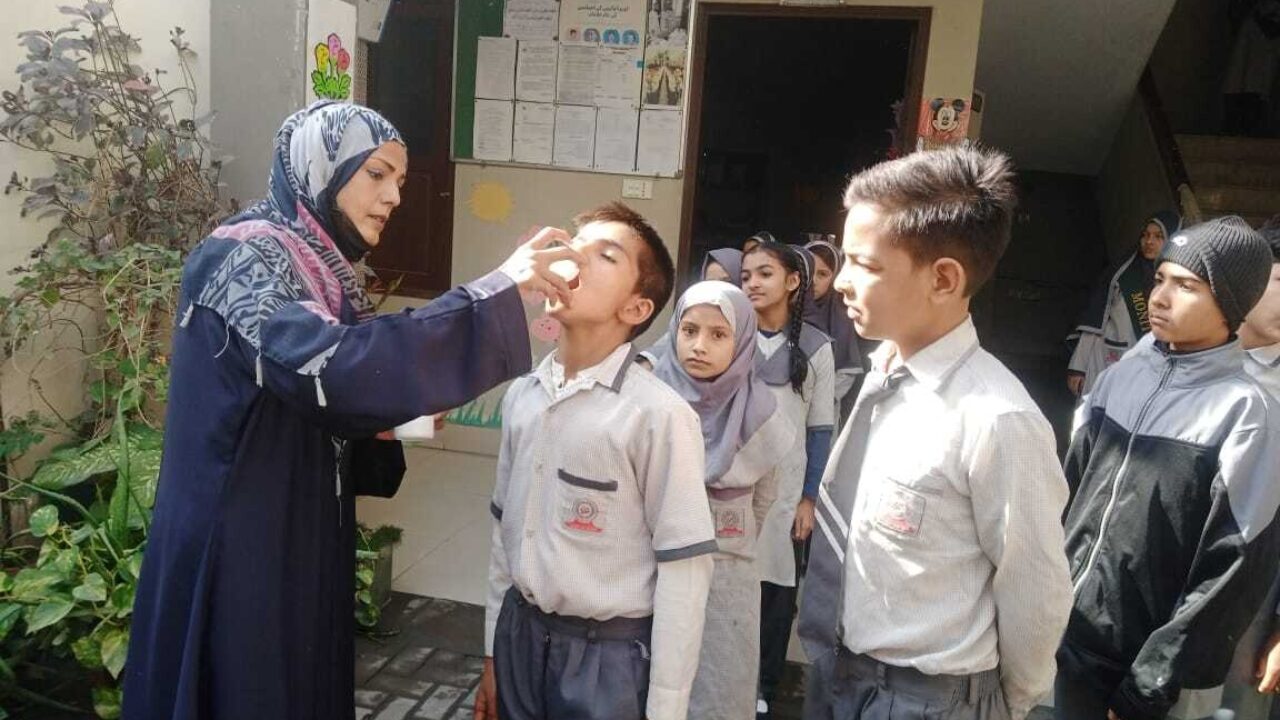

Meet Saumu [above left]. She’s a fifth grader in Kabula Primary School in Bungoma, Kenya, with ambitions of becoming a pilot. In the photo next to her is Valentiyne; an eighth grader, who is preparing to sit for Kenya’s high-school entrance exam later this year. Her dream is to become a doctor. Both girls know that in order to achieve their goals they need to have access to quality education, and show up to school with the energy and commitment to learn.
At Evidence Action, we determine impact based on data, and in partnership with governments, we reached over 280 million children in 2017 alone through our Deworm the World Initiative. Our focus on scale means we rarely have the opportunity to zoom in on an individual’s experience. So in February, we jumped at the chance to visit these two girls, who we first met on a deworming day in Kenya back in 2013. Since then, Saumu and Valentiyne have remained healthy and in school. As Kenya’s National School-Based Deworming program gears up to treat in over 140 sub-counties in 2018, girls like Saumu and Valentiyne remind us of the importance of deworming.
For the last five years, Saumu and Valentiyne have benefited from annual deworming treatment, delivered by their teachers at school. Mass deworming of children in schools is a cost-effective, World Health Organization (WHO)-recommended approach to addressing a widespread problem that adversely affects children’s school performance: intestinal worms.
Globally, over 835 million children are at risk of parasitic worm infections, and in Kenya more than five million school-age children are at risk of worms, including soil-transmitted helminths (STH) and schistosomes. The effects of worm infection can be subtle at first, but become more debilitating as the burden, or intensity, of worms increases in an individual. Worm infections can cause malnutrition, diarrhea, anemia, and compromised immunity against a host of other diseases. Children who are affected by worms are often lethargic—inhibiting their ability to pay attention in class. They also end up missing school during bouts of stomach discomfort and diarrhea. As Valentiyne explains of her own experience, “When that medicine didn’t come before, sometimes our stomachs were disappointing [hurting] in class while the teacher was teaching. After taking [the medicine], we became good.”
In addition to the health benefits, randomized controlled trials show that deworming can reduce absenteeism by up to 25% and increase long term economic productivity. Research has also shown that deworming girls increases their chances of passing primary school exit exams and enrolling in secondary school. The evidence of impact is clear, as is our impetus to action.
For over five years, we’ve worked with the Government of Kenya to deworm more than 6 million children annually, at an average cost of less than $0.50 per child. In that time, over 76,000 schools have participated in deworming day. Each round of deworming has surpassed the WHO’s target of treating 75% of at-risk children, with the number of children infected with worms falling dramatically during that time – STH prevalence reduced from 33% in 2012 to 3% in 2017, and schistosomiasis prevalence reduced by 67%, according to data from the Kenya Medical Research Institute (KEMRI). In Bungoma County in Western Kenya, around 600,000 children are treated each year. For Valentiyne and Saumu, the impact is personal: “[Deworming treatment] helps us understand what the teacher is teaching. It helps our bodies,” Valentiyne explained.

Building on five successful years, we are pleased to continue our collaboration with the Government of Kenya through a new partnership agreement signaling our mutual commitment to ensuring continued deworming treatment through 2022. We’re proud to support the cost-effective delivery of a simple treatment that has profound implications for both health and education, giving children like Saumu and Valentiyne a better shot at their dreams.
Want to help us reach more individuals like Saumu and Valentiyne with life-improving interventions? By donating to Evidence Action, you know that your giving will make the largest impact possible. For the Deworm the World Initiative, $15 can provide deworming treatment to an entire class in Kenya! Give today at http://donate.evidenceaction.org and help us tackle poverty.


